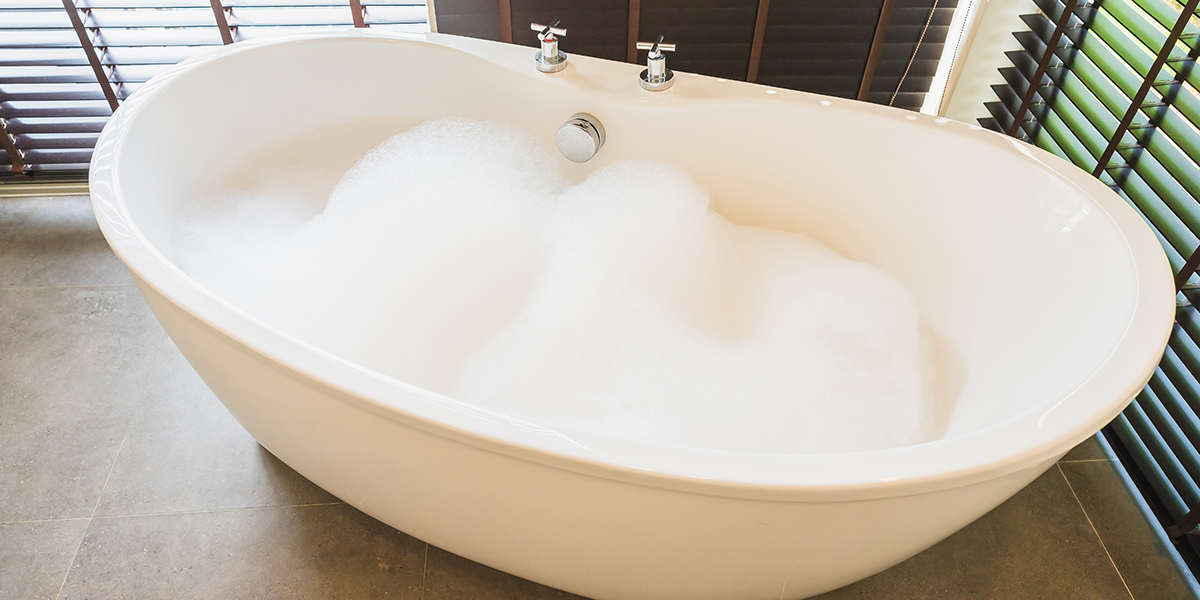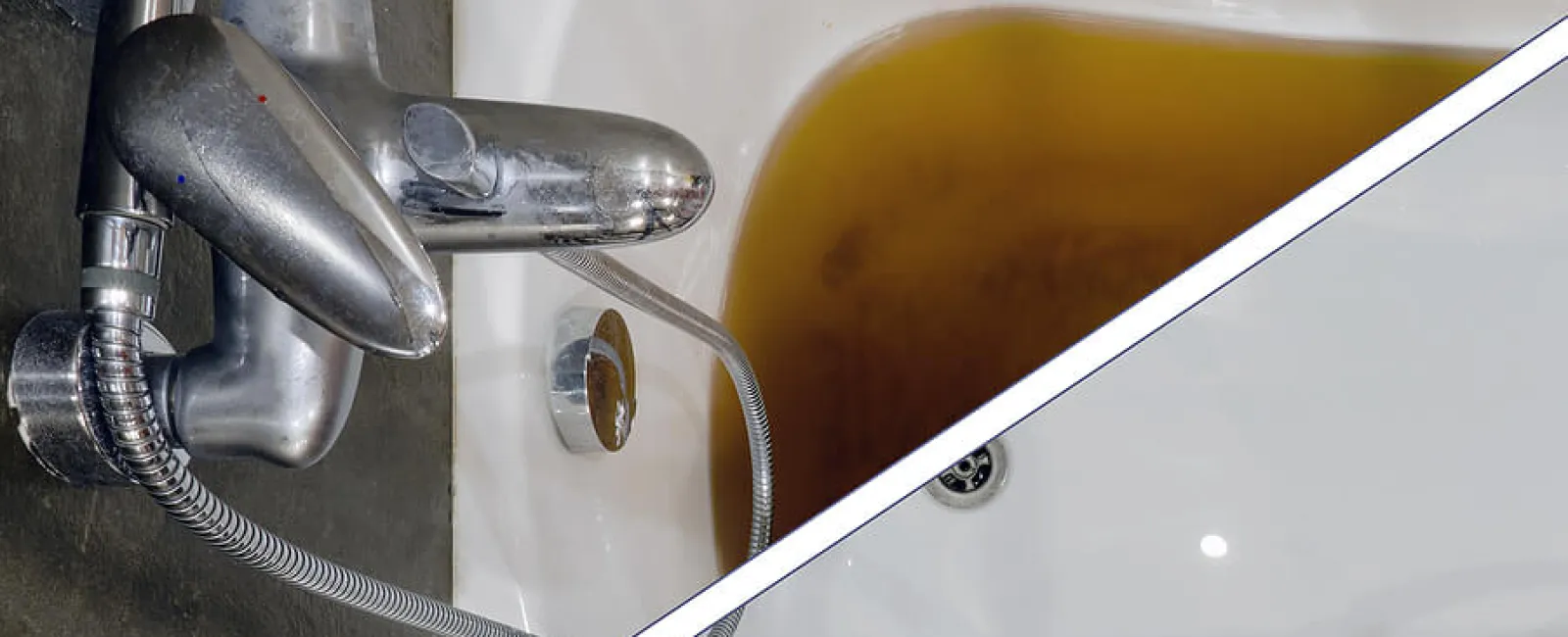Investigating the Phenomenon of Drainage Rising Through the Bathtub
Investigating the Phenomenon of Drainage Rising Through the Bathtub
Blog Article
The article down the page involving Why is Sewage Backing Up Into My Bathtub? is totally entertaining. Don't bypass it.

Sewer backup in the bath tub can be a stressful and unsanitary issue for any kind of house owner. Not just is it troublesome, yet it also presents significant health dangers and shows underlying concerns with the plumbing system. Comprehending why sewer is showing up via the bath tub is essential for taking proper action to address the problem properly.
Introduction to the Problem
Usual Factors for Sewage Back-up
Clogs in the Sewer Line
One of one of the most usual causes of sewage backup is a blockage in the sewer line. This can happen because of the build-up of particles, oil, or international things in the pipelines, stopping correct flow and causing sewage to support into your bath tub.
Tree Root Intrusion
Tree origins seeking wetness and nutrients can penetrate sewer lines with small fractures or joints. Over time, these origins can grow and expand, creating significant damages to the pipelines and resulting in sewer back-up concerns.
Comprehending the Trouble
When sewer starts backing up right into the bath tub, it's a clear indicator of a problem with the drain system. The wastewater that must be moving far from your home is rather finding its way back into your living space, which can result in considerable damages and health hazards.
Prospective Causes
Several elements can contribute to sewage backup in the bath tub. From clogs in the sewage system line to problems with the plumbing facilities, identifying the root cause is important for finding an option.
Aging Facilities
Older homes may have outdated plumbing systems that are extra prone to corrosion, splits, and damage. As pipes age, they end up being much more prone to leaks and blockages, increasing the chance of sewer back-up occurrences.
Heavy Rainfall or Flooding
During durations of heavy rainfall or flooding, the sewer system may come to be overloaded with excess water, creating backups and overflows. This can lead to sewage backing up right into bath tubs and other components inside the home.
Indicators of Sewage Back-up
Foul Odors
Unpleasant odors rising from drains or components, particularly in the washroom, may indicate sewage backup problems. These odors are usually solid and relentless, signifying a trouble that calls for prompt interest.
Slow Draining Fixtures
Tubs, sinks, and bathrooms that drain gradually or not whatsoever could be experiencing sewage back-up. If numerous fixtures are affected all at once, it's likely that the issue originates from a typical point, such as the primary sewage system line.
Gurgling Sounds
Odd gurgling or bubbling noises coming from drains pipes when water is running in other places in your house are a measure of air entraped in the plumbing system. This air build-up can arise from sewer back-up and must be checked out immediately.
Health And Wellness Threats Associated with Sewer Back-up
Contamination of Water
Sewage backup can pollute the water in your house, posturing a major health danger to you and your family members. Direct exposure to contaminated water can cause stomach concerns, skin infections, and various other illnesses.
Mold Growth
Wetness from sewage backup can produce optimal conditions for mold growth in your home. Mold spores can intensify respiratory problems and cause allergic reactions in delicate people, making prompt cleaning crucial.
Spread of Condition
Sewage consists of damaging bacteria, infections, and bloodsuckers that can trigger a variety of illness, including liver disease, cholera, and gastroenteritis. Coming into contact with sewage or infected surface areas places you at risk of infection.
Cleaning Up After Sewage Backup
Disinfection Procedures
Extensively sanitize and sanitize impacted locations after sewage backup to eliminate unsafe microorganisms and prevent mold development. Use suitable cleansing items and protective equipment to guarantee safe and reliable clean-up.
Restoration of Impacted Areas
Repair any kind of damage to floor covering, walls, or components caused by sewage back-up. Depending on the level of the damage, you might need to replace carpets, drywall, or other materials to restore your home to its pre-loss condition.
Immediate Actions to Take
Switching Off Water
In the event of sewage back-up, it's essential to shut off the water supply to stop additional contamination and damages. Locate the primary water shutoff valve in your house and shut it off up until the concern can be fixed.
Speaking To an Expert Plumber
Dealing with sewage backup is not a DIY task. Contact a qualified plumber with experience in taking care of sewage-related problems to assess the situation and execute needed repair services or clean-ups.
Preventing Contact with Infected Water
Up until the sewage back-up is settled, stay clear of contact with contaminated water to stop the spread of germs and pathogens. Wear safety gear if you must remain in the damaged location and clean your hands completely later.
Preventive Measures
Routine Upkeep of Drain Lines
Set up normal evaluations and upkeep of your sewer lines to determine and address prospective concerns before they rise into significant troubles. This can include cleaning debris, checking for tree root invasion, and repairing any broken pipelines.
Setting Up Bayou Shutoffs
Consider setting up bayou valves in your plumbing system to prevent sewer from receding into your home during durations of heavy rainfall or flooding. These shutoffs automatically close when water draws back up, shielding your building from contamination.
Appropriate Disposal of Household Waste
Stay clear of flushing anything apart from toilet paper and human waste down the bathroom to stop clogs and blockages in the drain line. Dispose of oil, oil, and various other house chemicals properly to decrease the threat of plumbing issues.
Why is There Sewage Coming Up Through the Bathtub
Sewage in your bathtub is a major problem that can make you want to abandon the bathroom for good. You don’t have to. However, it is important to identify the source of the issue and take the necessary steps to resolve it in order to avoid any health risks and property damage. In this article, we will discuss what could be causing sewage to back up through your bathtub so you can take action quickly and effectively.
The Main Reason For Sewage Backup in The Bathtub
All the sinks and toilets in your home connect to different pipes that lead to the main sewer line. The sewer line then connects to the municipal sewer system. This connection works seamlessly on a daily basis, but there can sometimes be a problem with the main sewer line.
The most common cause of sewage backup is a clogged or blocked main sewer line. The main sewer line can be clogged due to the accumulation of debris, tree roots or grease buildup, or other materials. Another possible cause is a collapsed pipe. When this happens, your toilets and sinks won’t be able to drain properly. This is when sewage starts backing up through the bathtub. If the problem has been occurring for some time now, it might be time to consult with a plumber as there may be more severe damage that needs fixing.
How Can You Tell if it’s Coming From Your Sewer Line?
If you’re experiencing a sewage backup in your bathtub, then you can use a few simple methods to determine if it is coming from the main sewer line. First, try to unclog the tub drain with a plunger or an auger and see if that helps. If not, then inspect all of the drains in your house and check if there is any blockage in them. If some of the other drains are not working fine, then it’s likely the problem is with your main sewer line.
Common Signs of a Clogged Main Sewer Line
If you suspect that your main sewer line is blocked, then there are a few common signs to look out for. Frequent clogs in your home are a sure sign of a clogged sewer line. You can also check for slow drainage from all the plumbing fixtures.
Slow Drains
If you notice that it takes longer for your sinks and toilets to drain, then this could be a sign of a clogged main sewer line.
Frequent Clogs
Another common sign is that your drains or toilets become clogged almost all of the time. If this happens, then it could be a sign that the main sewer line is blocked.
Water Backup
Do you notice water or sewage coming back up from any of the drains in your home? If your answer is yes, you may have a clogged main sewer line.
Sinkholes
If you’ve noticed sinkholes in your yard or overflowing sewage from the ground, you may be facing a blocked sewer line issue.
Your Shower or Sink Makes Gurgling Noises
Have you noticed gurgling noises coming from your sink or shower lately? These are typically signs of a blocked sewer line and should be checked out immediately.
How to Prevent a Main Sewer Line Clog
Once you’ve identified that your main sewer line is clogged, it’s important to take steps to prevent it from happening again. The best way to do this is to avoid putting any solid material that can clog the drain, such as grease and other debris. You should also be mindful of what you flush down your toilet. In addition, you should schedule regular maintenance for your main sewer line. This will help keep it clear and free from clogs or backups.
What Should You do if You Notice Sewage Backing up Through The Bathtub?
If you’ve noticed sewage backing up through the bathtub, then it is important to call a professional plumber immediately. A plumber can inspect the situation and determine what the cause is, such as a blocked main sewer line. They will also be able to advise you on how best to fix the issue. In some cases, a simple drain cleaning may be all that is needed.
However, if the blockage is severe, then your plumber may need to use more advanced methods to clear the blockage.
No matter what, it is important to always call a professional plumber if you experience any kind of sewage backup. They will be able to assess the situation and provide you with a solution that is best for your home.
https://baylorinc.com/blog/why-is-there-sewage-coming-up-through-the-bathtub/

I was made aware of that write-up on Why is Sewage Backing Up Into My Bathtub? from an acquaintance on another website. Do you know about another individual who is sincerely interested in the topic? Be sure share it. I recognize the value of reading our article about .
Request Your Service
Report this page